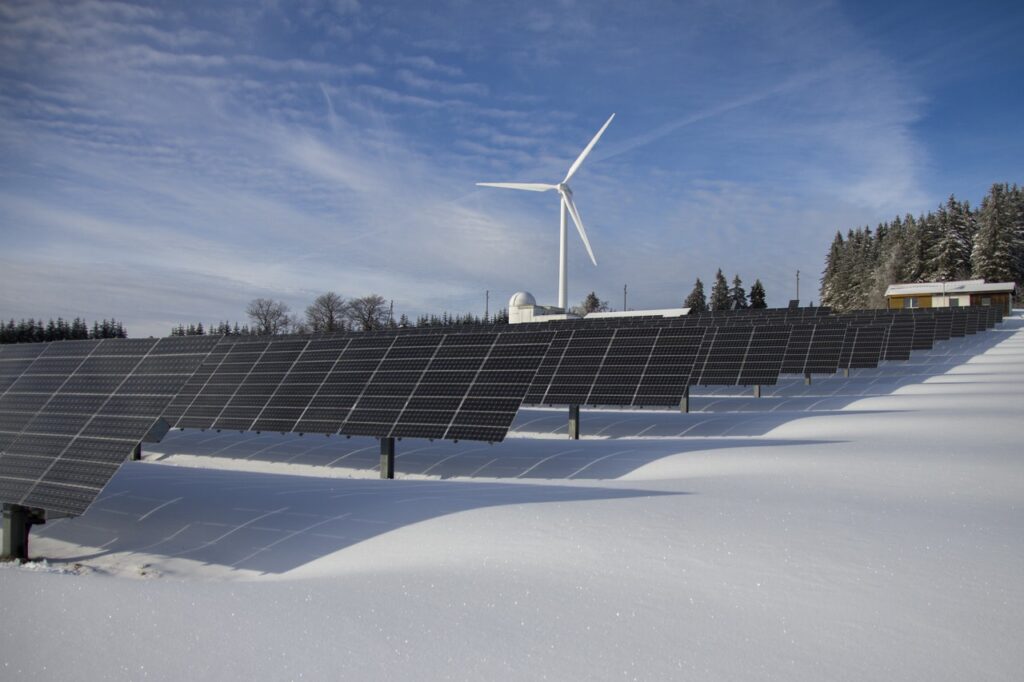What is Energy Engineering?
Energy engineering is a broad field of engineering that involves energy management, energy efficiency, renewable energy, and environmental maintenance. Not only must energy engineers be familiar with renewable energy, they must also know about oil and natural-gas energies. Energy engineering is an interdisciplinary collaboration between all of the energy technologies.
Energy engineering is all about reducing the world’s energy consumption. Energy is the building blocks of everything and is required to power or build anything that is used in the world. Engineering applied to the energy sector focuses on increasing the energy efficiency of companies, machinery and households.
Energy engineers achieve energy saving through clever building designs, better use of materials and through renewable energy devices. Engineers often conduct building audits and inspections to first identify where energy can be saved. They use light level meters, thermo-guns and data logging to measure the energy losses.
History of Energy Engineering
Human beings have been transferring energy from one form to another since their first use of fire. Energy and powered devices are an integral part of society. Humanity’s earliest days saw the discovery of fire through wood combustion (burning of wood), and the use of charcoal for smelting metals dates back as early as 5000 BC. Powered devices using natural energy sources such as water and wind were introduced by the Ancient Greeks and were commonly used until the 18th century, when the steam engine revolutionized the way devices could be powered. Various natural oils were also used for a range of purposes, such as whale oil for lamps.

The Industrial Revolution led to the massive use of coal as fuel, and the extraction of petroleum and various other oils became extremely important with the advent of internal combustion engines. Electrical power, also based on fossil fuels, became widespread at the end of the 19th century and the production of cleaner electrical energy through hydro-power, nuclear, geothermal, and solar means is a topic even more relevant to today’s world.
The efficiency of the transfer of energy is a new field. The oil crisis of 1973 and the energy crisis of 1979 brought to light the need to get more work out of less energy.
Energy Engineering Education
The first step to becoming an energy engineer involves earning a bachelor’s degree. Bachelor’s degree programs are available as a Bachelor of Science in Energy Engineering, Bachelor of Science in Mechanical and Energy Engineering, or a bachelor’s degree in energy systems engineering. These 4-year programs include classes in mechanics, chemical science, differential equations, renewable energy systems, power electronics, energy systems, and hybrid transportation.
The second step to becoming an energy engineer involves simply working as an engineer. Working as an energy engineer usually requires work experience. However, some employers will hire individuals to work as junior engineers. These positions often don’t have experience requirements and are available to recent engineering program graduates.

The third step to becoming an energy engineer consists of earning a professional engineering license. Many states require that engineers be licensed, regardless of the type of engineering they perform. Usually, becoming licensed requires possessing at least a bachelor’s degree from an officially accredited school, having four to six years of work experience, and passing an exam. Many employers only hire licensed applicants.
The fourth step to becoming an energy engineer consists of actually working as an energy engineer. After gaining experience and becoming licensed, individuals are usually eligible for energy engineering positions. Employers of energy engineers often seek individuals who have experience working as an engineer in general or as an energy engineer.
Energy Engineering Careers
Jobs
The global energy landscape is changing drastically, and if you’re an aspiring energy engineer, this is good for you – jobs are proliferating. With the effects of global warming becoming ever more pronounced, and deadly, countries are ratcheting up investment in solar, wind and geothermal power, bringing down prices in the process, and increasing their scalability.
The cost of Solar Photovoltaic (PV) modules, for example, has fallen by 99 percent over the last four decades – a staggering drop. This shift in the energy landscape is creating huge opportunities for the budding energy engineer. Regardless of the technology used to generate and store energy, there is a growing need to create systems that make efficient use of energy, meaning energy engineers will always be in high demand.

Energy engineers work across the full energy lifecycle, including production, extraction, conversion, transmission and distribution, and play an integral role in processing energy from a variety of sources, e.g. solar, wind and geothermal power, nuclear power, water, oil, gas and bio-fuels.
Mechanical engineers research, design, develop, build and test mechanical devices, including tools, engines and machines. According to the Bureau of Labor Statistics (BLS), the field of alternative energies may offer new opportunities for occupational growth for people in this profession.
Salaries
An entry-level energy engineer with less than 1 year experience can expect to earn an average total compensation (includes tips, bonus, and overtime pay) of $60,277. An early career energy engineer with 1-4 years of experience earns an average total compensation of $67,458. A mid-career energy engineer with 5-9 years of experience earns an average total compensation of $80,34. An experienced energy engineer with 10-19 years of experience earns an average total compensation of $95,485. In their late career (20 years and higher), employees earn an average total compensation of $100,447.
The top respondents for the job title energy engineer are from the companies CLEAResult, DNV GL and Siemens. Reported salaries are highest at Siemens where the average pay is $82,892. Other companies that offer high salaries for this role include Optimum Energy and DNV GL, earning around $80,903 and $74,264, respectively. Willdan Group, Inc. pays the lowest at around $60,173. CLEAResult and Schneider Electric Ltd also pay on the lower end of the scale, paying $67,915 and $70,318, respectively.
What Do Energy Engineers Do?
Energy engineers design, develop, and audit energy-related projects to find efficient and innovative ways to supply energy. This involves looking at ways to reduce costs, researching ways to generate new energy to reduce carbon emissions and minimize environmental damage, and carrying out site inspections and energy surveys.
Responsibilities
Some job responsibilities of an energy engineer include:
- Determine energy savings compared to baseline equipment and building codes performing different engineering calculations for high efficiency equipment and machinery.
- Determine performance and energy savings for system modifications and improvements.
- Establish and perform energy use benchmarks (Energy Star).
- Implement Commercial and Industrial Conservation and Load Management (C&LM) programs.
- Research and explain greenhouse gas reduction opportunities.
- Revise engineering design drawings, specifications and reports to validate energy savings.
- Search and present energy conservation projects comprising capital and operational measures.
- Verify installation of energy efficiency measures working on field inspections.

Skills
Energy engineers possess commercial awareness, in which they have a good understanding of the general energy market and maintain knowledge of the latest industry trends. They have strong organizational skills as well as great communication skills, both written and verbal. Typically, employers will require a bachelor’s degree in an engineering-related subject, as well as the following abilities:
- Computer Skills: Energy engineers possess strong computer skills to use software and programs required to do this job, such as AutoCAD, Microsoft Excel, and project management tools
- Independent: Often, energy engineers are required to work independently, so they need to have the initiative and proactive approach to be able to find solutions to problems on their own, without a team assisting them
- Initiative: Energy engineers need to have the ability to recognize emerging problems and be able to take the initiative to proactively identify solutions, such as fixing technical issues with equipment
- Math Skills: This job requires the ability to collect and analyze data, customize software and spreadsheets, and model facility changes based on audits of potential energy consumption. For this aspect of the job, strong math and science skills are vital
- Project Management Skills: Energy engineers need to have strong time management skills and the ability to organize tasks effectively, as they coordinate with project management team members to analyze installation systems and ensure that projects are completed to schedule
Future of Energy Engineering
Alternative energy is renewable energy that comes from natural sources that are constantly replenished, and which do not harm the environment.
Compared to non-renewable fossil fuels they have lower carbon emissions. Wind power, geothermal power, hydro-power, biomass power, and solar power are examples of alternative energy, or renewables.
Energy sources such as solar and wind have improved over the years in both efficiency and adoption by the public. For both industries, engineers will be needed for research and for adapting new technology in the design, installation, and maintenance of new wind turbines and solar panels.
Texas is one of the leading states in wind power generating capacity. Wind power was one of the earliest forms of energy harnessed to do work. Wind-generating capacity is expected to grow as demand for renewable energy increases.

Something else that is favorable for engineers coming into the industry is that many engineers who are baby boomers are planning to retire soon. Replacements will have to be hired.
If you have anything to add, please feel free to leave a comment down below, and sign up to our newsletter for more of the same content!



